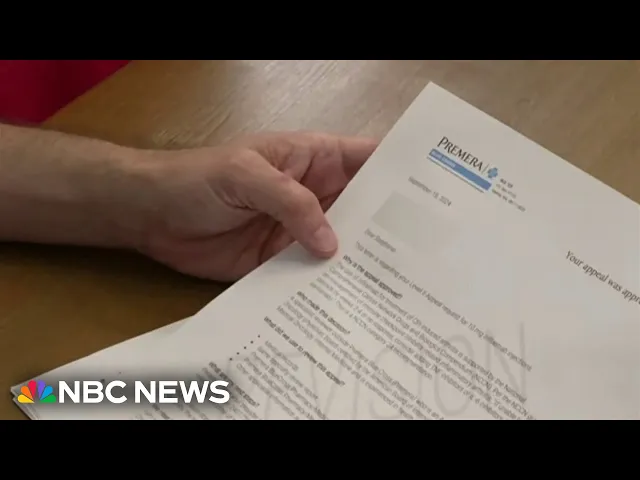Couple uses artificial intelligence to fight insurance denial

AI helps patients fight insurance denials
In a healthcare system notorious for its complexity and frustration, artificial intelligence is emerging as an unexpected ally for patients. A recent case involving a Bay Area couple showcases how AI tools like ChatGPT can help everyday people navigate the labyrinthine process of appealing insurance claim denials—a development that could democratize access to healthcare advocacy.
Key Points
- When faced with an insurance denial for a critical brain MRI, the couple leveraged ChatGPT to craft a compelling appeal letter, ultimately winning approval for the procedure.
- The husband, a software engineer, recognized that the formulaic nature of insurance appeals made it an ideal use case for AI assistance, which could effectively mimic the formal language and logical arguments required.
- Medical experts acknowledge that while AI can be valuable for navigating bureaucratic processes, it still has significant limitations when it comes to providing actual medical advice or replacing human judgment.
- This application represents a practical use of AI that helps ordinary people challenge powerful systems that have historically relied on consumer frustration and abandonment of claims.
The Democratization of Healthcare Advocacy
Perhaps the most significant insight from this story is how AI tools are leveling the playing field between individual patients and massive insurance bureaucracies. Historically, insurance companies have benefited from what experts call the "hassle factor"—a deliberate strategy that makes the appeals process so frustrating and time-consuming that many patients simply give up.
This power imbalance has long been an unaddressed issue in American healthcare. Insurance companies employ teams of professionals who specialize in processing—and often denying—claims, while most patients lack the specialized knowledge, time, or emotional energy to fight back effectively. The introduction of AI assistants like ChatGPT could fundamentally alter this dynamic by providing patients with a digital advocate that never tires, knows the formal language of appeals, and can produce compelling arguments quickly.
As Dr. Ateev Mehrotra from Harvard Medical School noted in the report, this represents a particularly appropriate use of AI technology—one that helps navigate bureaucratic processes where expertise in format and argumentation matters more than deep medical knowledge.
Beyond the Obvious: Broader Implications
While the video focuses on one couple's success story, the implications extend much further. For healthcare providers, this trend signals a potential shift in
Recent Videos
How To Earn MONEY With Images (No Bullsh*t)
Smart earnings from your image collection In today's digital economy, passive income streams have become increasingly accessible to creators with various skill sets. A recent YouTube video cuts through the hype to explore legitimate ways photographers, designers, and even casual smartphone users can monetize their image collections. The strategies outlined don't rely on unrealistic promises or complicated schemes—instead, they focus on established marketplaces with proven revenue potential for image creators. Key Points Stock photography platforms like Shutterstock, Adobe Stock, and Getty Images remain viable income sources when you understand their specific requirements and optimize your submissions accordingly. Specialized marketplaces focusing...
Oct 3, 2025New SHAPE SHIFTING AI Robot Is Freaking People Out
Liquid robots will change everything In the quiet labs of Carnegie Mellon University, scientists have created something that feels plucked from science fiction—a magnetic slime robot that can transform between liquid and solid states, slipping through tight spaces before reassembling on the other side. This technology, showcased in a recent YouTube video, represents a significant leap beyond traditional robotics into a realm where machines mimic not just animal movements, but their fundamental physical properties. While the internet might be buzzing with dystopian concerns about "shape-shifting terminators," the reality offers far more promising applications that could revolutionize medicine, rescue operations, and...
Oct 3, 2025How To Do Homeless AI Tiktok Trend (Tiktok Homeless AI Tutorial)
AI homeless trend raises ethical concerns In an era where social media trends evolve faster than we can comprehend them, TikTok's "homeless AI" trend has sparked both creative engagement and serious ethical questions. The trend, which involves using AI to transform ordinary photos into images depicting homelessness, has rapidly gained traction across the platform, with creators eagerly jumping on board to showcase their digital transformations. While the technical process is relatively straightforward, the implications of digitally "becoming homeless" for entertainment deserve careful consideration. The video tutorial provides a step-by-step guide on creating these AI-generated images, explaining how users can transform...
